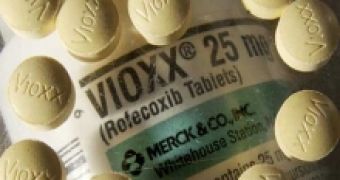Researchers said on Thursday that painkillers, known as COX-2 inhibitors, may increase the risk of heart attacks, raising the blood pressure and the risk of clots in the blood. These COX-2 inhibitors were created as a safer long-term treatment than aspirin, or other analgesics for arthritis and similar pain.
2 COX-2 painkillers, Vioxx and Bextra, were pulled out from store shelves more than 1 year ago, after it was shown that they raise the risk of heart problems. Now, scientists were able to find out how these drugs triggered heart problems in some cases, also pointing towards a type of new drugs without side effects.
Vioxx has been withdrawn from the market in September 2004, after being shown it doubled the risk of heart attack and stroke in people who took the drug for at least 18 months. Bextra included a warning for its COX-2 Celebrex, the only drug with this kind of serious side effects available on the market.
Scientists believe that the COX-2 drugs have negative effects on protective fat, called prostacyclin, while leaving unaltered a harmful one called thromboxane.
"One does not need additional explanations to understand what we have seen in clinical trials. COX-2 inhibitors confer a small, but absolute cardiovascular risk, using the same mechanism by which they relieve pain and inflammation," said Colin Funk, from Queen's University, Ontario, who took part in the research.
COX is an enzyme which comes in 2 forms: COX-1 and COX-2. Aspirin and other analgesics such as Ibuprofen, also known as non-steroidal anti-inflammatory drugs or NSAIDS, affect both of these 2 enzymes, but have also side effects such as fatal internal bleeding.

 14 DAY TRIAL //
14 DAY TRIAL //